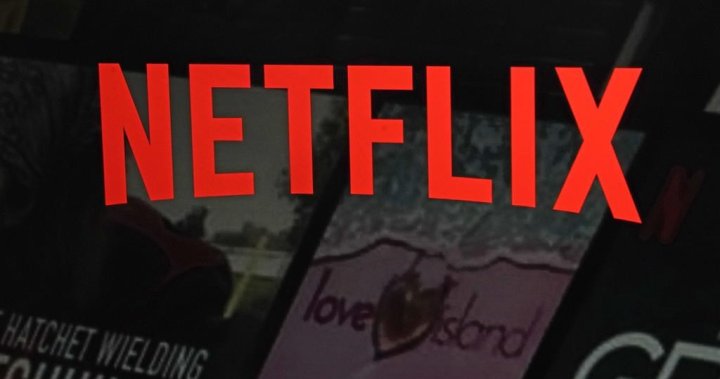Streaming video pioneer Netflix disappointed Wall Street on Wednesday with second-quarter revenue that fell short of analyst estimates, sending shares tumbling.
The revenue figure, along with a weaker-than-expected forecast for revenue in the third quarter, overshadowed the addition of 5.9 million new streaming customers from April through June and earnings that easily topped predictions.
Shares of Netflix were down 8.9% after the results at $435.
Netflix has been looking for new ways to make money as streaming competition intensifies and it nears market saturation in the United States. The company launched a cheaper tier with advertising last November, and started asking password borrowers to pay in a widespread crackdown that rolled out in May.
The company said it expected revenue growth to accelerate in the second half of the year, adding it aimed to continue to create compelling shows and movies, improve monetization, boost its video game business and make users’ experience better.
“While we’ve made steady progress this year, we have more work to do to reaccelerate our growth,” the company said in its quarterly letter to shareholders.
The company reported diluted earnings-per-share of $3.29 for the second quarter, ahead of the $2.86 consensus forecast of analysts surveyed by Refinitiv.
Its nearly 6 million subscriber additions outpaced the 1.9 million that Wall Street expected. Netflix had a total of 238.4 million subscribers worldwide as of the end of June.
Quarterly revenue climbed 2.7% from a year earlier to $8.2 billion, shy of analyst forecasts of $8.3 billion. The company estimated third-quarter revenue would hit $8.5 billion. Wall Street had been forecasting $8.7 billion.
Analyst Craig Huber of Huber Research Partners said some shareholders may have become too bullish about Netflix’s advertising tier and the password crackdown.
“Some investors’ expectations for (the third quarter) got too far ahead of what is looking like reality in management’s guidance,” Huber said.
While the company added subscribers, it said average revenue per member fell three per cent from a year earlier. That was partly because many of the new sign-ups came in countries where Netflix charges lower prices.
Netflix said its advertising tier remained a small part of its membership base and that current ad revenue is not material.
“We’ve got a long way to go from where we are today, even getting to 10% (of revenue)” Chief Financial Officer Spencer Neumann said on a post-earnings interview with an analyst.
Pivotal Research Group analyst Jeffrey Wlodarczak attributed some of the share slide after the results to investors selling to take profits. Netflix stock has gained 62% this year, including over 8% this month.
Like its competitors, Netflix is grappling with strikes by tens of thousands of Hollywood actors and writers. The labor action has forced many film and television productions to shut down, though analysts say Netflix has an advantage because of its global production.
Netflix raised its 2023 free cash flow estimate to $5 billion, up from $3.5 billion, in part because it will spend less on content with productions shut down.
Netflix co-CEO Ted Sarandos, who noted he grew up in a union household and recalled the hardship of his father going on strike, said he hoped the labor tensions would be resolved soon.
“Let me start by making something absolutely clear: This strike is not an outcome that we wanted,” Sarandos said.
(Reporting by Lisa Richwine and Dawn Chmielewski in Los Angeles; Additional reporting by Yuvraj Malik in Bengaluru; Editing by Deepa Babington and Chris Reese)
For all the latest Technology News Click Here
For the latest news and updates, follow us on Google News.

